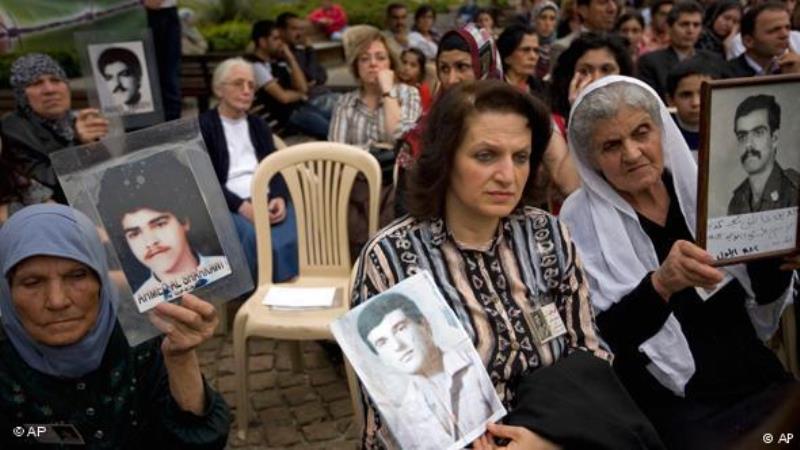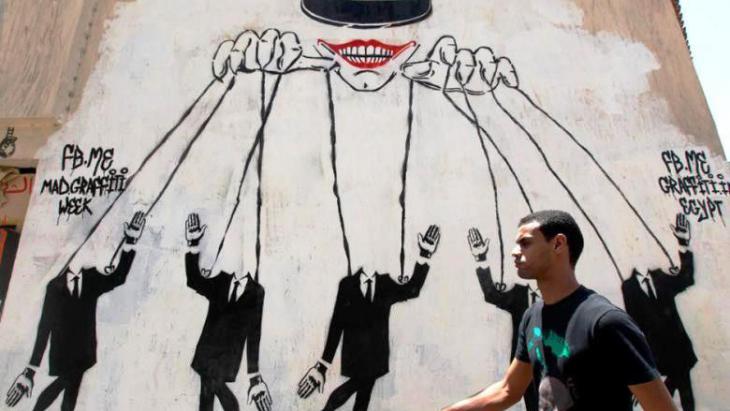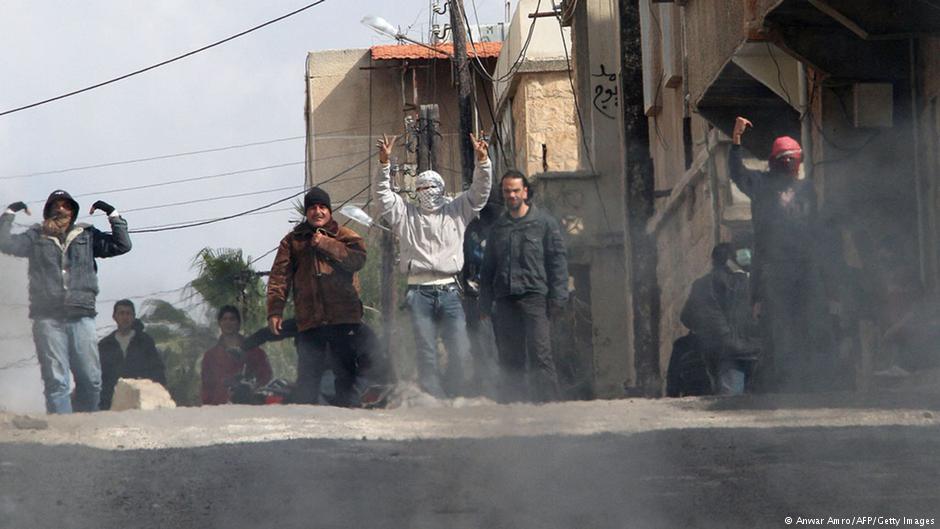The Arab issue of kith and kin

The Arab world beats to a rhythm of civil wars, from Syria to Iraq, Libya, Yemen and Somalia and before this, Lebanon, Sudan, Algeria and so on. Wars stop only to start again and perhaps the most extreme example of enduring civil war is Lebanon. Even periods of stability can be considered as civil ʹcoldʹ wars that the regimes wage against their own peoples. After all, stability and security in the Arab world is the flip side of rule by the secret police and the military.
The Arabic concept of "civil war" refers to kith and kin, unlike in English and German, where it refers to citizens, i.e. war between citizens. It is reminiscent of the debate in the 1990s regarding the translation of the notion of "civil society" as intermediaries between the individual and the state, in the form of parties, trade unions and voluntary associations.
In the Arab scenario, the intermediary bodies were the tribe, the clan and the religious establishment, all of which related to kinship, not to civil structures and modern institutions. For this reason, the concept of community was intended to distinguish it from the lost or embryonic civil society. The debate about civil society and community remains a quintessentially Arab phenomenon.
Here, too, the distinctiveness of Arabic – although it has the same meaning in other languages – is useful in looking at Arab civil wars as wars between social entities. Non-Arab civil wars such as the Russian, the French, the Spanish, the Greek and so forth were between citizens. Groups that identify themselves through modern ideologies and institutions aim at the triumph of these ideologies. Indeed, they may be seen as a concomitant struggle in transition.

Arab civil wars, on the other hand, are wars between kinsfolk, however they may appear in their early stages. The social group becomes partisan, whether sectarian, tribal, party political or ethnic. The key difference between the two types of conflicts is that Arab civil wars have no end. In the non-Arab world, it is the ideology which is defeated, whilst with us Arabs, there can be no end. The Sunni, the Shia, the Alawite and the Christian will remain, like the Arab, the Kurd and the South Sudanese.
Social ties are the true driver
The only point of Arab civil wars is dominion, which is characterised by warlords who live by perpetuating war as a source of wealth, subjugating and plundering. They differ from other civil wars, in which each warring party has sought to build an economy with which to replenish resources and to guarantee victory. Ironically, this revenue-generating model is similar to the normal workings of an Arab economy.
The politicisation of the social group is two-fold. On an overt level, in the case of political Islam, both Shia and Sunni and political Maronitism, sectarian affiliation is politicised. But then thereʹs also the calculated masquerade of the current Syrian and the previous Iraqi regimes, not to mention the Lebanese Progressive Socialist Party too, which feign modern ideologies, but for which social ties are the true driver. One is reminded here of the civil wars in Africa, in which each tribe forms its own democratic, progressive or liberal front.Why do Arabs fight tribal wars and not civil wars? Or to put it another way, why have modern civil identities not succeeded in overcoming Arab tribal identities? The adoption of civil identities doesnʹt exclude the possibility of war and the twentieth century has seen many of these. But the dilemma facing identities based on kinship is that its civil wars go on and on.
Civil identity and the liberal era
From the end of the 19th century to the 1940s, the Arab liberal era saw the development and growth of civil identities. Two factors may have led to this: firstly, economic development and independence through the emergence of modern industry, which allowed other aspects to develop, including class identity. The struggles which arose in the economic sphere crystallised along class lines and they transcended civil identities. Labourers toiled in unfair conditions and they identified themselves as workers in the fight against capitalist exploitation, regardless of their sectarian affiliations.

Secondly, the parliamentary system, the free press and the emerging middle class combined to create a public space which adopted a common language and this transcended communities and social groups.This doesnʹt mean that the social group was absent; on the contrary, it was there and we can see this if we look closely and see how deeply rooted it was in many Arab parties and political movements of that time. Notwithstanding this, economic independence and the existence of a public space gave rise to areas which were relatively free from kith and kin. Thus, the social group had to develop an outlook and a language which would not cut it off from the others.
The contradictions of the liberal era, such as economic incongruities, the manipulation of the parliamentary system and government administrations that benefitted the elite, were the reasons for its demise and its subsequent dismantling by populist authoritarian regimes. They came to power by means of coups, which were mostly predicated upon partisan ties. Even with traditionalist regimes, their legitimacy was built upon long-established partisanship that protects the system.
Dismantling of the public domain
From the second half of the 20th century onwards, the Arab state expanded and took control of society through nationalisation, as was the case with the populist regimes or through monopolisation of the sources of wealth in other countries. In so doing, it took command of the economy and annihilated the public sphere. Everything became hostage to national security. The state became the executor of power, wealth and social status, although control over the state itself was possible only through partisan ties and kinship.
By dismantling the public domain, such as the free press and the parliamentary system, the state destroyed the space in which civil and national identities might have been nurtured and developed beyond the purview of the social group. This latter comprises the daily life of the neighbourhood, the clubs and the networks of friends and it encompasses the contacts and circles which underpin business, which are in turn based on family and sectarian affiliations.
As opposed to the daily purview of the social group, modern identity seems to be more abstract, less tangible and less routine. It calls for a "collective" or people who are not directly part of everyday relationships. The "nation" is an example of this, with its call for an imaginary collective that transcends our daily relationships. As Benedict Anderson argues, it is only present when it can develop across a broad swathe of the public domain.

This is true from a class perspective, although it can only be seen properly in the context of the class struggle itself. Moreover, class identity can only have a role when it is supported by the logic of economic independence, unless it is replaced by a state system that can raise revenue in order to re-distribute wealth, transforming itself by providing welfare and buying allegiance.
With its monopolisation of the economy, the Arab state has become the route to wealth. Indeed, wealth can only be acquired through dealings with the state in order to obtain contracts or import and export licences, or even to secure a government position that allows the job holder the opportunity for bribery, or at the very least, which gives him a position and a livelihood. This type of interaction has reinforced the relationships of kinship represented by the networks of clientele among government personnel and their circles.
The Arab state, whether it is revenue-generating or populist, has never been a modern state in the normal sense of a civil society trying to build a nation. On the contrary, it remains focussed on garnering wealth for the dominant social group, thereby protecting kith and kin.
Morris Ayek
© Qantara.de 2018
Translated from the Arabic by Chris Somes-Charlton
